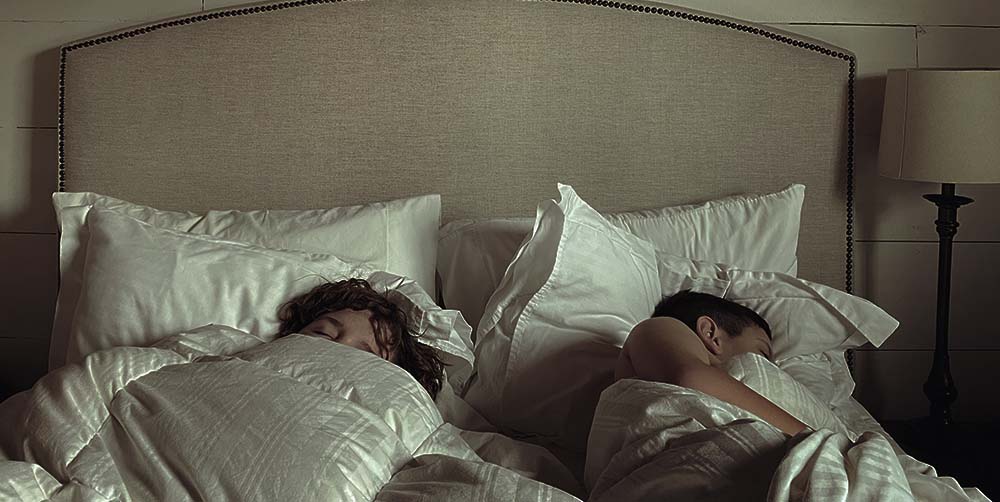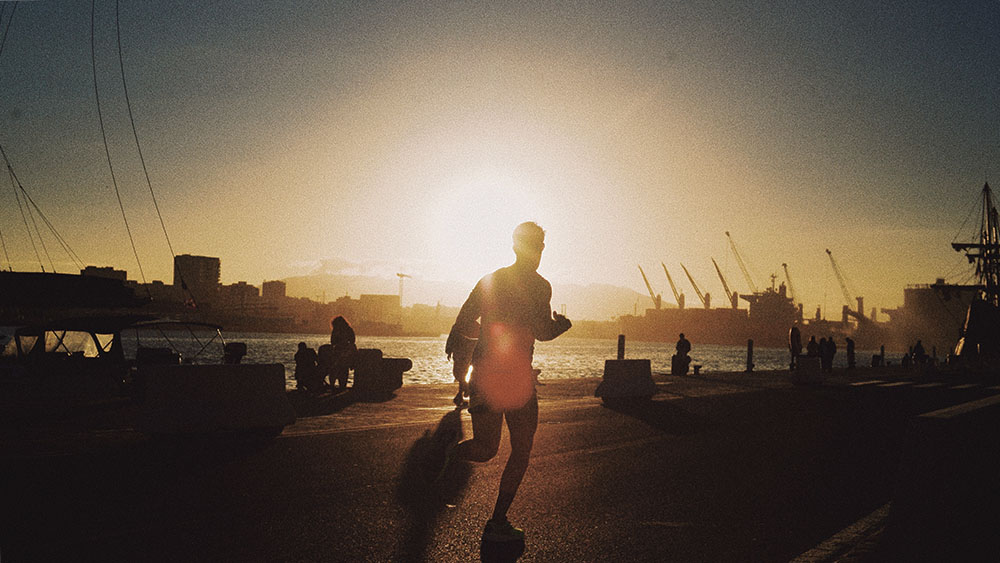
Use Sleep Hygiene and Sleep Better
Perhaps you have depression, anxiety, panic attacks, post-traumatic stress disorder, or you are simply stressed out from the day. Perhaps you have a demanding job or a personal life that makes it difficult for you to sleep. Or you keep waking up and can’t seem to fall back asleep. Your constant lack of sleep is most noticeable during the day. You are tired, unable to concentrate, easily overwhelmed, or irritable. Everything that weighs you down and makes you unhappy about yourself. Not only do you suffer, but so does everyone around you.
However, if you practice sleep hygiene, it can help you fall asleep and stay asleep. To do this, you train yourself to behave in certain ways. You develop a routine. It’s not about forcing yourself to sleep, but training the body and mind to go to bed at a certain time.
Healthier sleep can alleviate the symptoms of the mental problems I mentioned earlier and significantly improve mental health. A science team from the University of Keele and Sheffield found this out in an analysis of a total of 65 studies.
Two Main Pillars of Sleep Hygiene
So, before we begin, it’s always a good idea to make yourself a cheat sheet that you can refer to each evening. I’ve divided sleep hygiene into two main pillars. The outer and inner rules.
Outer Rules
Regular Wake Up and Bed Times
You should not deviate from your normal waking and sleeping times by more than 30 minutes. You should especially stick to your regular wake-up time. This biological rhythm is beneficial to your body.
Sleep Duration
Every person works individually here. Most adults sleep between six and eight hours a night. The exception proves the rule here.
No Sleeping During the Day
You should avoid taking long naps during the day because your tiredness will wear off in the evening, making it more difficult to fall asleep. The exception is a maximum of 20-minutes power naps, for which you should set an alarm.
The Bed is Taboo During the Day
Really only use the bed for sleeping or for sex. You shouldn’t do anything else in bed. For example, watching films, working or eating are taboo.
Limited Bed Time
If you can’t sleep at night or wake up in the middle of the night, stay in bed for a maximum of 15 minutes. Get up when you can’t sleep. For example, watch a documentary that has a calming effect on you or read a book. Go back to bed when you get tired again.
Sleeping Environment
Make your sleeping environment relaxing and sleep-inducing so that you look forward to going to bed in the evening.
Light
avoid bright lamps and provide curtains to regulate the brightness from outside at night. Bright light can negatively affect your sleep pattern.
Alarm Clock
Turn the alarm clock away from you. This way, you can avoid checking the time repeatedly and relieve some of the pressure to sleep.
The Everyday Buffer Zone
Try to finish everyday life about two hours before going to bed and only relax. Read a book or take a bath or shower. This shuts down your body and mind. You should avoid television, social media or sports during this time. If you have to use your smartphone before going to bed, you should make sure that the display night mode is switched on. Colors are then displayed warmer and have a supportive relaxing effect on you.

Inner Rules
Let us now look at the inner rules that you should develop in order to get a good night’s sleep:
Cycling Thoughts
If problems at work or in your family are causing you stress, it may be beneficial for you to write them down. That way, you won’t sleep with all of your stressful thoughts. If you can’t sleep because your mind is racing, try listening to nature sounds or relaxing music. This returns your focus to the present moment.
Alcohol
If at all possible, avoid alcohol entirely, but avoid drinking alcohol at least 3 hours before going to bed. Alcohol can help you fall asleep, but it degrades the quality of your sleep and makes it difficult to sleep through the second half of the night.
Smoking
If you can, avoid smoking entirely, but if you must, try not to smoke after 7 p.m. Nicotine has a particularly sleep-disturbing effect when combined with alcohol. Smokers’ sleep patterns may be disrupted in the long run as a result of impaired lung function.
Caffeine and Theine
Stop drinking coffee or other caffeinated beverages 4 to 8 hours before bed. If you suffer from acute sleep problems, you should avoid caffeine or black/green tea for four weeks. Afterwards, you should only drink a maximum of three cups until ten o’clock in the morning.
Meal
You should stop eating fatty or high-calorie foods before bed. If you’re still feeling hungry, eat a banana, or a spoonful of peanut butter, or drink a glass of milk instead. When you wake up in the night you should avoid eating. Otherwise, your body will get used to it and will regularly ask for extra food throughout the night. So eat a little snack before going to bed.
Physical Activities
Sports and other types of physical activity are beneficial to both your mental and physical health. Strong exercise, on the other hand, should be avoided after 6 p.m. Otherwise, like caffeine, the stimulation of your sympathetic nervous system will signal “stress” to your body. It then takes several hours for your body to return to normal.
Your Bedtime Ritual
You should have a ritual before you go to bed. For example, water your flowers, turn off the lights in your home, lock the front door, and brush your teeth. Relaxation exercises, such as progressive muscle relaxation, can induce additional relaxation in you. However, your ritual should not last longer than 30 minutes. Then go to bed when you are tired.
Physical Afflictions
It remains to say that sleep problems can also indicate physical afflictions such as sleep apnea, cardiac arrhythmias or high blood pressure. Many medications can also cause sleep problems. In these cases, please see a doctor immediately.
Practice Sleep Hygiene
Please keep in mind that it is crucial for a good nights sleep to strictly take action and follow your cheat sheet sleep hygiene list in order to find a better and deeper nights sleep.
And if you are in the need for nature sounds to find down and let go of your daily stress then feel really welcome to check out my audio library on Spotify, Apple Music, Amazon Music, etc. in the section below. Happy Relaxing Everyone!

